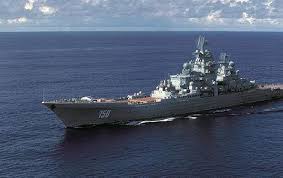We continue with the issue of the competitiveness of the European economy and enterprises; the issue – after the control of massive and uncontrolled immigration – most important at present and certainly the biggest challenge for the Commission and the Member States for the next five years.
According to industry figures, 90% of world trade is conducted through the international maritime industry, so that Europe is clearly at risk of dependence on third countries, since 94% of world merchant shipbuilding takes place in Asia, and 52% of maritime trade is handled by Asian companies, most notably the China Ocean Shipping Company, the world’s largest shipping company.
The consequences of these figures are dramatic for our security and defence as the interrelations between shipbuilding and military construction are decisive. Innovation, development, research and civilian technology are needed in the military field, and vice versa. A strong civilian shipbuilding industry helps military development, and vice versa.
China is building an average of two new warships a month and is starting to build a fourth aircraft carrier as well as nuclear submarines, a sure risk of military imbalance in the oceans, which above all is a direct threat to Taiwan, the former nationalist but democratic China.
Sea dominance is one of the main challenges of the 21st century, although in Europe the military effort – little in any case – has focused on land-based response capabilities, considering that the main danger comes from the East, in particular Russia.
Without underestimating the Russian threat, the maritime domain and the set of industries dependent on it are overwhelmingly more important. The data from technical reports are indisputable: a) 99% of the world’s digital communications move through the wired data network spread over the oceans; b) 70% of crude oil and petroleum products and 90% of gas are transported through undersea pipelines.
To all this, if that were not enough, we should add the mining and fishing of the seabed and the continental shelf.
In short, without a strong civil shipbuilding sector in Europe, local ship equipment manufacturers will disappear, with the obvious risk that the process of relocation to Asia will increase even further, in a vicious circle that threatens our sovereignty.
It is obvious that the naval defence sector alone does not generate sufficient demand to sustain the maritime equipment industry needed for military vessels and is therefore totally dependent on civilian industry.
The European Naval Industry Group has developed a comprehensive action plan for the European defence industry to address the most immediate challenges for European naval defence, but this requires a complete change of model and, above all, of mentality in Europe’s ruling elites.
It cannot be hidden that the growth of China and Korea, and even the strength of Japan, is being sustained by state aid, market-interfering governments, and an increasing degree of protectionism; while in the European Union politicians and intellectuals remain anchored in outdated defences of ‘free trade’.
These are all challenges for a powerful industry in Europe. Member States must initiate massive investments, with cooperation and coordination, with a triple strategic interest in mind: Russia. China and Africa, not just Putin’s danger. The so-called European Defence Fund could and should be a good instrument, to be strengthened, but member states cannot abdicate their own responsibilities or pretend that the common can always, and in any case always, respond to their own needs.
A mistaken economic vision, and above all the damage that pacifism and anti-militarism have done to European societies, are the cause of a permanent neglect of responsibility on the part of the European political class. And I am convinced that the old politicians will be incapable of facing the future; a new generation of politicians with new ideas and, above all, greater determination and determination will be needed.



 Subscribe
Subscribe